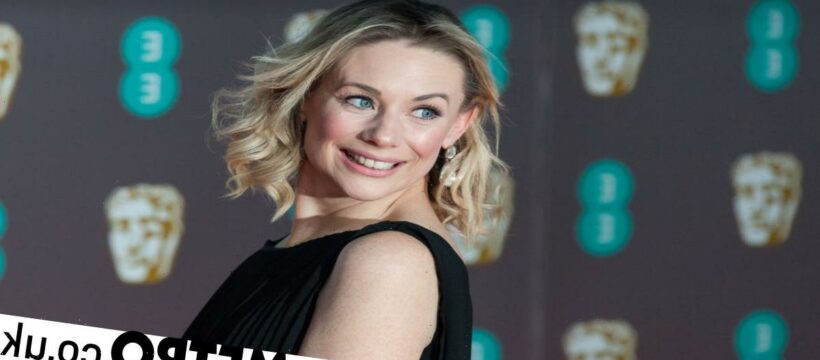Back in 2008, I had just finished doing a nice stint on EastEnders and was asked if I wanted to run the London Marathon for Anthony Nolan – a charity that helps to save the lives of people with blood cancer.
To be honest, I didn’t know that much about blood cancer or the charity at the time. Only that a school friend had been diagnosed with leukaemia, plus, my mum was a nurse, so I’d picked up bits of information along the way. But that was about it.
Now, I can’t resist a challenge, so I said yes to running the 26.2 miles and I have to admit, I’m not a natural runner, so training was pretty hardcore – but I was determined to do it!
After the marathon, I was invited to an event hosted by the charity to discover how the funds I’d raised were being used. While there I had a chance meeting with Miriam González Durántez (who is married to Nick Clegg) where we started talking about umbilical cords.
Miriam is from Spain. She told me about her country’s umbilical cord blood banks – and how it is common knowledge amongst mothers that they can donate theirs after birth in a bid to help life-saving research.
Back then, I thought the umbilical cord was just a piece of flesh attaching the baby to the mother’s placenta. In most hospitals it’s usually thrown away after you give birth (unless it was whizzed up in a smoothie, that is!).
But, after chatting with Miriam, I was in awe listening to how amazing and helpful umbilical cords could truly be. How they could give someone who has blood cancer a second chance of life.
This is as the blood stored in a newborn’s umbilical cord is rich in stem cells and can help contribute towards research into treatments for diseases like blood cancer – and could even be used to facilitate a stem cell transplant.
For those with blood cancer, a transplant would replace their damaged, unhealthy blood cells with normal, healthy, ones.
Anthony Nolan is the only charity in the UK that collects them after a woman’s given birth – otherwise, they’re literally thrown out like rubbish.
I was completely fascinated by the idea – and totally bewildered that, in England, they were just… chucked away!
It’s a conversation that stuck with me, even when I fell pregnant seven years later with my twins. Miriam’s words made me want to make sure that I gave birth in a hospital where I could donate my babies’ umbilical cords.
On top of the three hospitals where you can donate your cord to the NHS, there’s only five hospitals in the UK (One in London, two in Leicester and Manchester) that help facilitate the donation via Anthony Nolan. So, I transferred my care across to Kings College Hospital, London.
It was pretty simple to sign up and get involved – I just asked my midwife, telling her I wanted to donate my umbilical cords, and she popped it in my patient notes.
All I had to do was fill in some paperwork to formally consent and a basic medical questionnaire to ensure everything was OK to proceed and then I needed to make sure that I got to 37 weeks (as that is when the pregnancy is considered full term.)
My twins were born in August 2015 by emergency C-section. Soon after they were delivered, someone from Anthony Nolan came to collect the placenta (all very discreetly) and that was my job done. I barely even noticed it happening.
Once the cord is collected, it’s stored in one of the charity’s blood banks, until it’s needed for a patient. If it can’t be used as part of a transplant, it’s used for research purposes.
I found out a few months later that my babies had actually saved someone’s life. It was an incredible feeling.
Donating your baby’s umbilical cord doesn’t hurt you or your baby either, as there’s no nerve endings in it – so it’s a real no brainer, and an incredible feeling knowing it can be used for such good.
Since my donation, Anthony Nolan has now made me a charity ambassador – allowing me to continue raising awareness of the wonders of cord blood. I’m due to give birth to my third child in the new year and I’ve already signed up to donate again!
It’s a lovely fact that your baby could become a life saver at birth.
There’s around 250,000 people living with blood cancer in the UK right now – with many needing urgent treatment. Imagine the lives we could save if we made cord donation the standard.
One man’s trash is another’s treasure, after all!
For more information on the charity and umbilical cord donation, including how to register to donate yours, please visit: https://www.anthonynolan.org/help-save-a-life/donate-your-umbilical-cord/what-umbilical-cord-donation
Do you have a story you’d like to share? Get in touch by emailing [email protected].
Share your views in the comments below.
Source: Read Full Article


